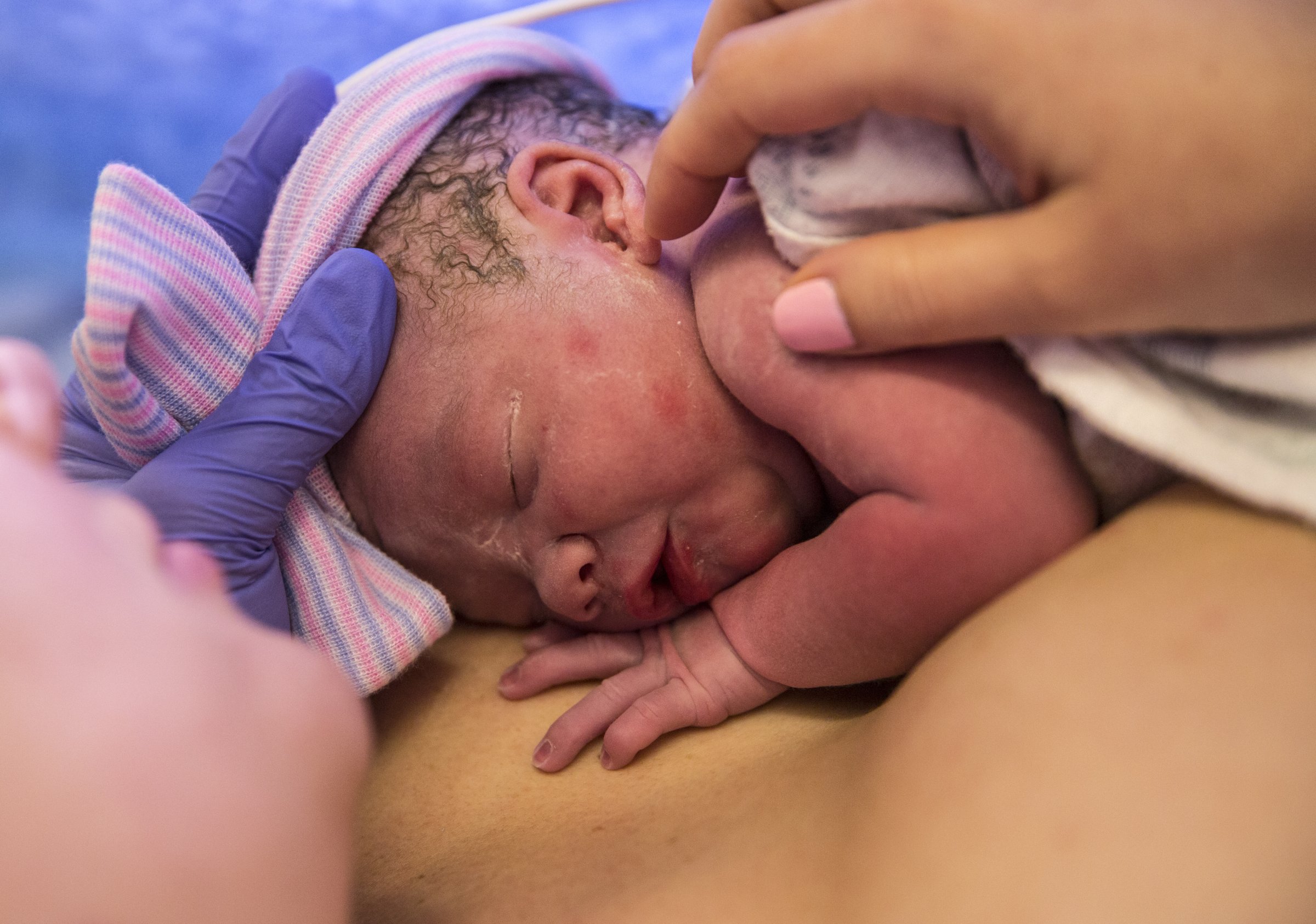
A second woman in the U.S. born without a uterus has given birth to a baby, thanks to a uterus transplant. The birth took place at Baylor University Medical Center at Dallas, a part of Baylor Scott & White, which performed the first birth via uterus transplant late last year.
The baby, born in February, is a girl. The hospital is not revealing the identity of the mother, but says the pregnancy and birth were uncomplicated.
The birth is the second in the hospital’s ongoing uterus transplant clinical trial. The women in the trial have absolute uterine factor infertility (AUI), which means their uterus is nonfunctioning or nonexistent. Like the first woman to give birth as part of the trial, the woman who gave birth in February has a condition called Mayer-Rokitansky-Küster-Hauser (MRKH) syndrome, which means she was born without a uterus and lived her life believing she would never be able to be pregnant or give birth.
The woman was transplanted with a uterus from a living donor. Such procedures, while still experimental, could provide another option for families dealing with AUI, including women who have had their uterus removed for medical reasons like cancer.
MORE: First U.S. Baby Born After a Uterus Transplant
“Emotionally this was the same level of intensity [as the first birth],” says Dr. Giuliano Testa, the leader of the uterus transplant clinical trial at Baylor, and surgical chief of abdominal transplant for Baylor Annette C. and Harold C. Simmons Transplant Institute, adding that it was important the team was able to achieve the same success as the first birth.
Like the first birth in the trial, which TIME reported exclusively in December, the birth was a scheduled Caesarean section. The women in the clinical trial are transplanted with a uterus from either a living or deceased donor. Baylor’s uterus transplant program is one of a handful to launch in the United States in recent years, and it’s the first to use both living and deceased donors. The hospital plans to complete a total of 10 uterus transplants as part of the trial.
The first successful uterus transplants and births were performed in Sweden by a medical team at Sahlgrenska University Hospital in Gothenburg. That groundbreaking trial resulted in eight births. Baylor was the first hospital to replicate the success of the Swedish team.
“The first birth proved that birth after uterus transplantation for the first time in the world could be replicated outside of the center in Sweden,” says Dr. Liza Johannesson, an ob-gyn and uterus transplant surgeon who was part of the original uterus transplant team in Sweden and has since moved to Texas in order to work on the Baylor program. “This birth shows that our center has a solid uterus transplant program and that the first birth wasn’t a lucky on-time-event.”
Dr. Testa says the trial is not only showing that uterus transplants and births are possible, but that the team is learning how to make the procedure work best for the women.
“We are starting to confirm some scientific intuitions that if replicated in future cases will be essential in making the journey of uterus transplant easier and safer,” he says, adding that for example, immunosuppression (drugs women take to avoid rejection of the uterus) may be needed at lower doses than expected, which means less side effects for the women.
Most women in Baylor’s trial have moved to the Dallas area to partake in the study. Once they receive a uterus transplant, the women recover and wait to achieve menstruation which can usually take about four weeks from the transplant. If the transplant is successful, the women will then attempt in vitro fertilization (IVF). The women with MRKH have functioning ovaries that are not attached to their wombs, which is why they need IVF.
Uterus transplants are still experimental, and Baylor is currently covering the procedures. Like other infertility treatments, it’s unclear if insurance companies will cover the procedure. Some estimates put the procedure at $500,000. Baylor says they do not view uterus transplants as a replacement for other options like adoption or surrogacy, but as another future option for women and their partners.
More Must-Reads From TIME
- The 100 Most Influential People of 2024
- The Revolution of Yulia Navalnaya
- 6 Compliments That Land Every Time
- What's the Deal With the Bitcoin Halving?
- If You're Dating Right Now , You're Brave: Column
- The AI That Could Heal a Divided Internet
- Fallout Is a Brilliant Model for the Future of Video Game Adaptations
- Want Weekly Recs on What to Watch, Read, and More? Sign Up for Worth Your Time
Contact us at letters@time.com